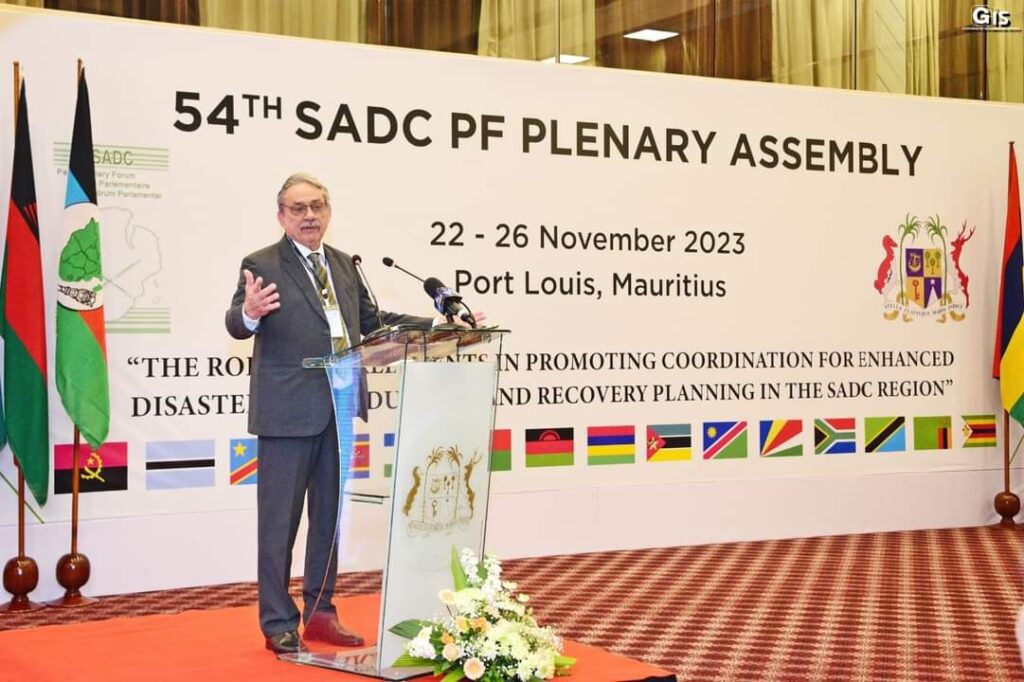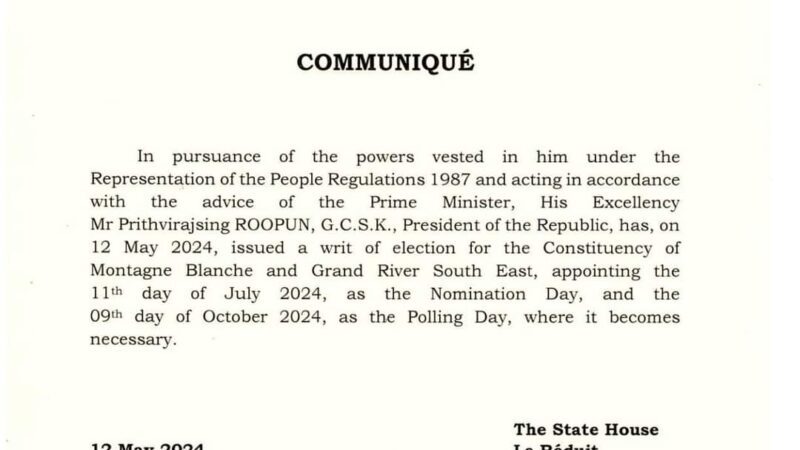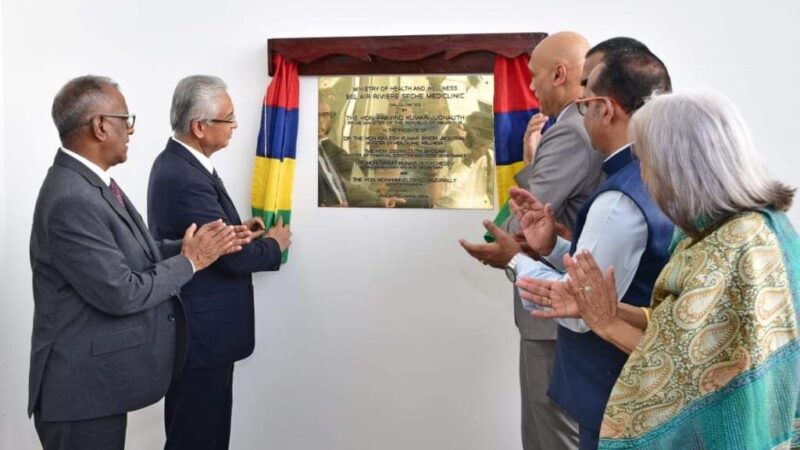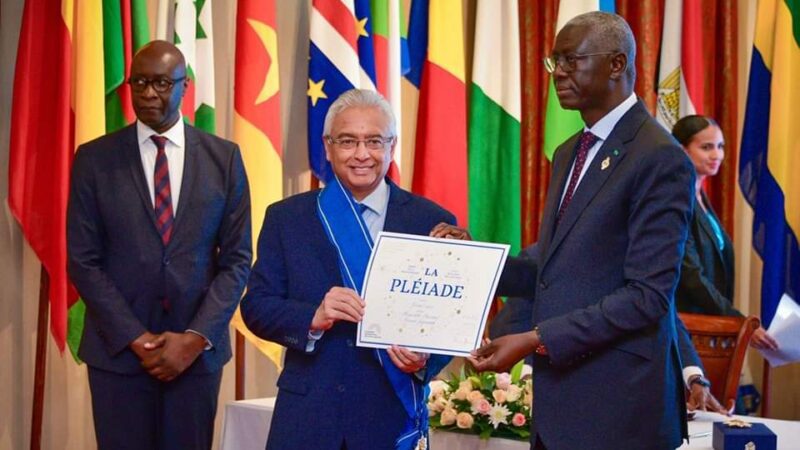The Prime Minister, Minister of Defence, Home Affairs and External Communications, Minister for Rodrigues, Outer Islands and Territorial Integrity, Mr Pravind Kumar Jugnauth, opened the 54th Plenary Assembly of the Southern African Development Community (SADC) Parliamentary Forum, yesterday Wednesday 22 November at the Sir Harilal Vaghjee Memorial Hall in Port Louis.

The Speaker of the National Assembly, Mr Sooroojdev Phokeer; the President of the SADC Parliamentary Forum and Speaker of the National Assembly of Seychelles, Mr Roger Mancienne; the Secretary-General of the SADC Parliamentary Forum, Ms Boemo Sekgoma; several Ministers; Members of Parliament; and other personalities were present.
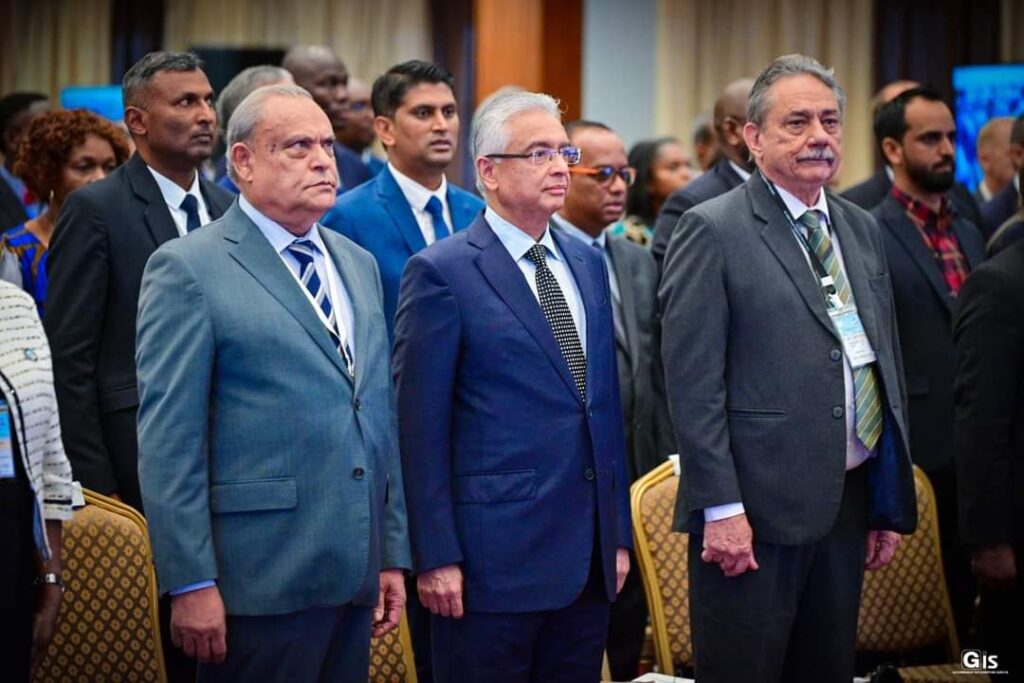
The Forum, under the theme ‘The Role of Parliaments in Promoting Coordination for Enhanced Disaster Risk Reduction and Recovery Planning in the SADC Region’, is being hosted by the National Assembly from 22 to 26 November 2023. It aims at providing a platform to support and improve regional integration through parliamentary involvement and promote best practices in the role of Parliaments in regional integration and cooperation. Some 110 delegates from 15 Member SADC countries, including Mauritius, are participating in the Plenary Assembly.
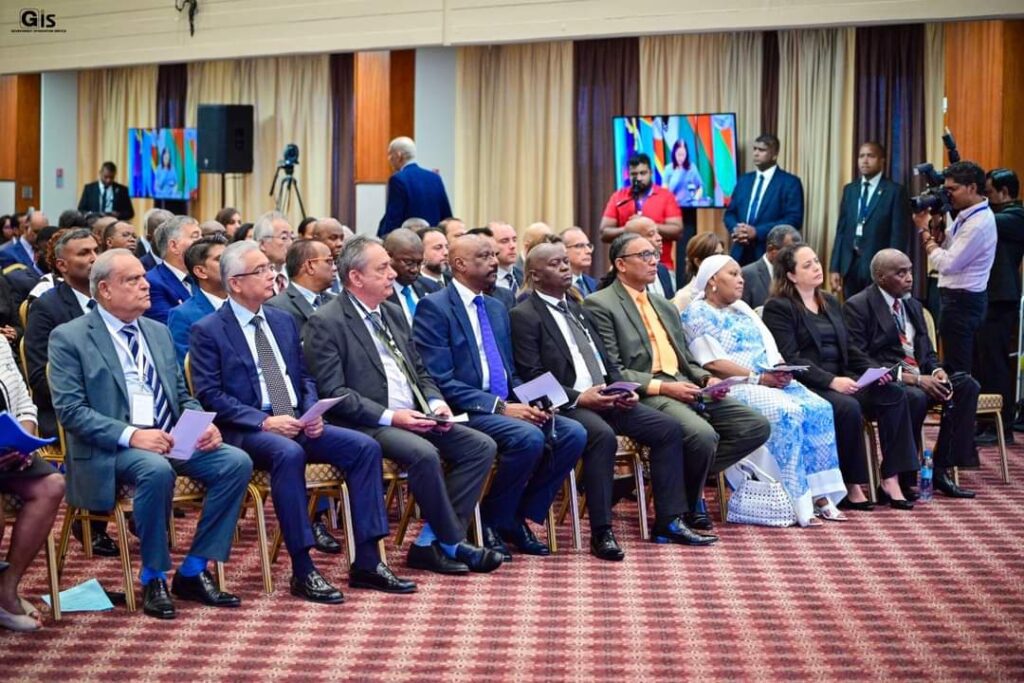
In his keynote address, Prime Minister Jugnauth underscored the shared commitment that united Parliamentarians to work for regional cooperation and solidarity in line with the SADC agenda. He highlighted the unwavering commitment of Mauritius to the principles and values of the SADC Parliamentary Forum as the apex inter-parliamentary body of the region. “The Forum is an indispensable platform to advance parliamentary cooperation within the SADC, and the country remains committed to work closely with member states to collectively tackle regional and global challenges the region faces,” he reiterated.
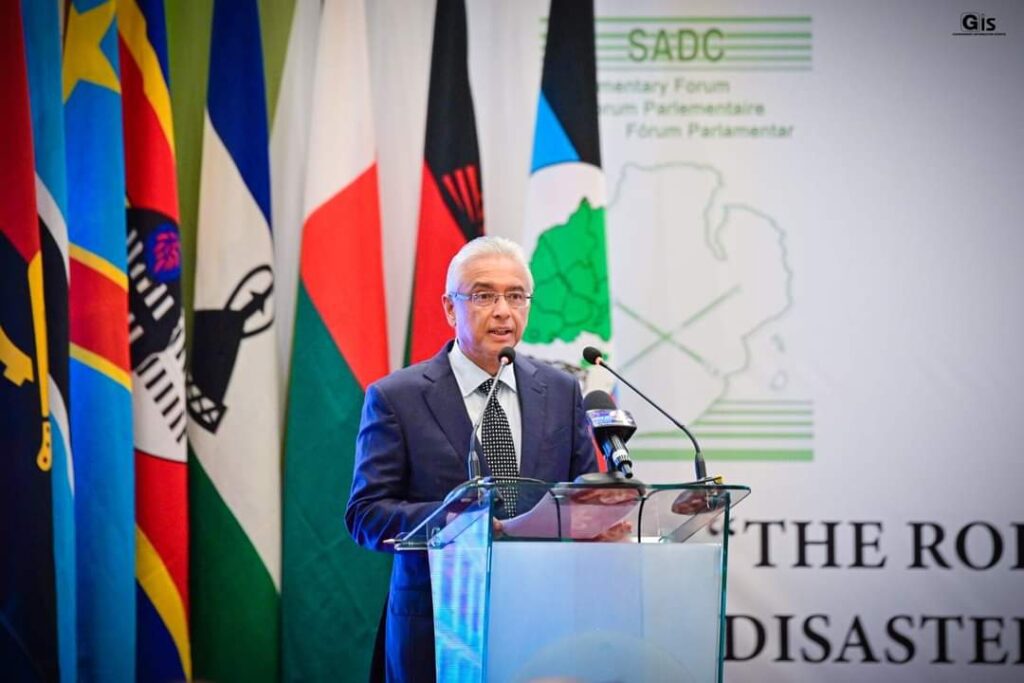
“Parliamentary cooperation and diplomacy,” he stressed, “are pivotal in the joint efforts to overcome challenges that pose threats to regional stability and prosperity.” The Prime Minister emphasised the central role played by Parliaments in establishing and strengthening the vital link between governments and the citizens they serve which, according to him, formed the very foundation of democratic system across the region. He commended the Forum for consistently engaging the regions’ citizens in various matters of concern and interest.
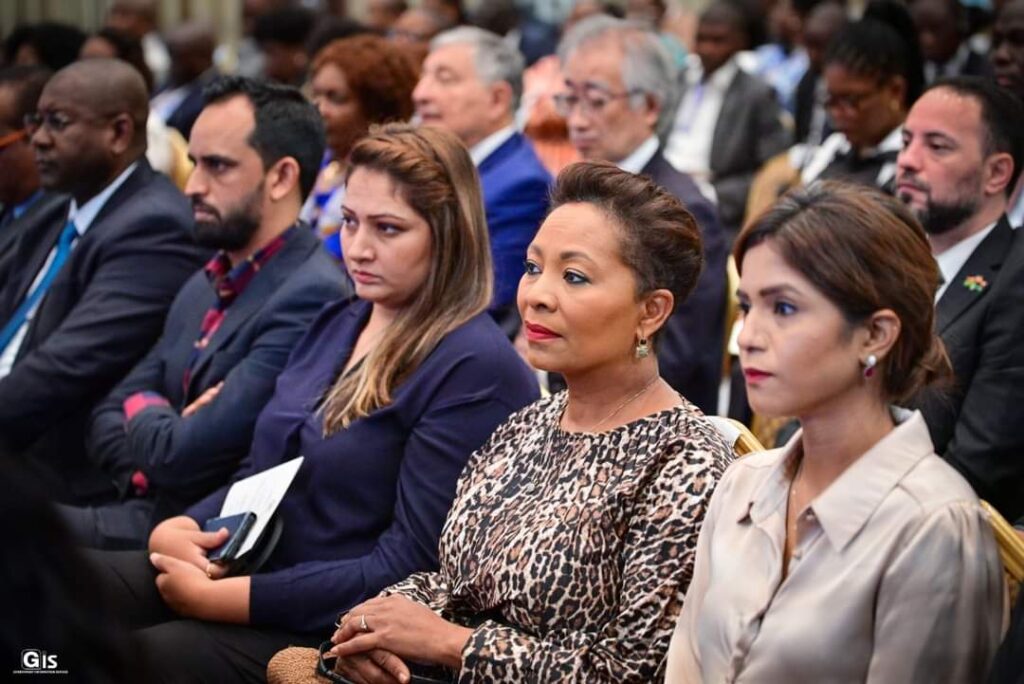
Speaking on the theme of the Forum, he remarked that it was timely and very relevant as it underscored the fundamental role Parliaments played in addressing the increasing challenges posed by natural disasters and climate change. “It demonstrates SADC’s commitment to the well-being of its people and calls upon authorities to be proactive and forward thinking in legislative effort, putting disaster risk reduction and recovery planning at the heart of the parliamentary agenda to make a significant difference for a more sustainable, resilient, and prosperous region,” he stated.
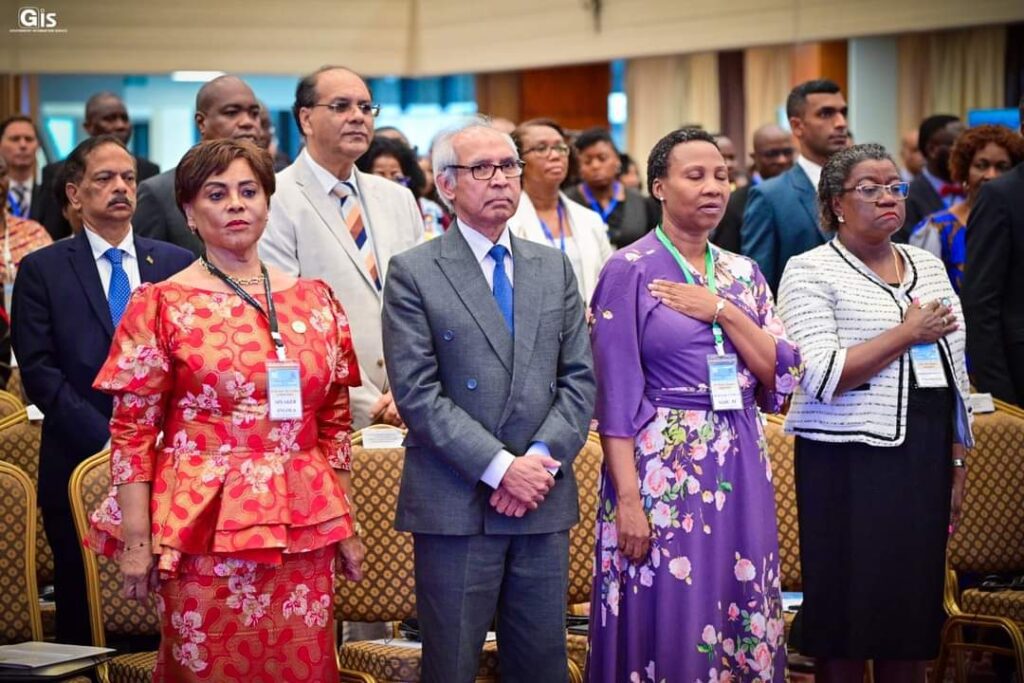
The Prime Minister, moreover, underlined the interconnectedness of countries and the necessity for regional cooperation and coordination in addressing effectively the challenges posed by climate change and disasters. Likewise, he added that it was important for Parliaments to facilitate partnerships among key stakeholders including governments, the civil society and international organisations to contribute to a comprehensive approach to disaster risk reduction.
“It is imperative for the Forum to advocate for the implementation of the SADC’s regional and global disaster risk reduction and recovery frameworks as they offer guidelines to coordinate efforts among SADC countries and international approach,” said the Prime Minister. He added that Parliamentarians, through this approach, would make significant contribution in reducing the impact of disasters and ensuring long-term recovery and development in the face of the escalating challenges associated with climate change.
Mr Jugnauth also mentioned that the Government of Mauritius had been swift in enacting the National Disaster Risk Reduction and Management Act in 2016 to mitigate the risk of disasters and prepare for recovery. He was hopeful that the resolutions of the Assembly would contribute to making the SADC region a safer place that was mindful of climate change governance as well as disaster preparedness.
Speaking on violence against women, he underscored that the Mauritian Government adopted a zero-tolerance approach with respect to all forms of gender-based violence. “Climate disasters tend to aggravate the circumstances and vulnerabilities of women in distress,” he pointed out. Prime Minister Jugnauth was hopeful that the Forum would add further momentum to the elimination of violence against women in southern Africa and beyond.
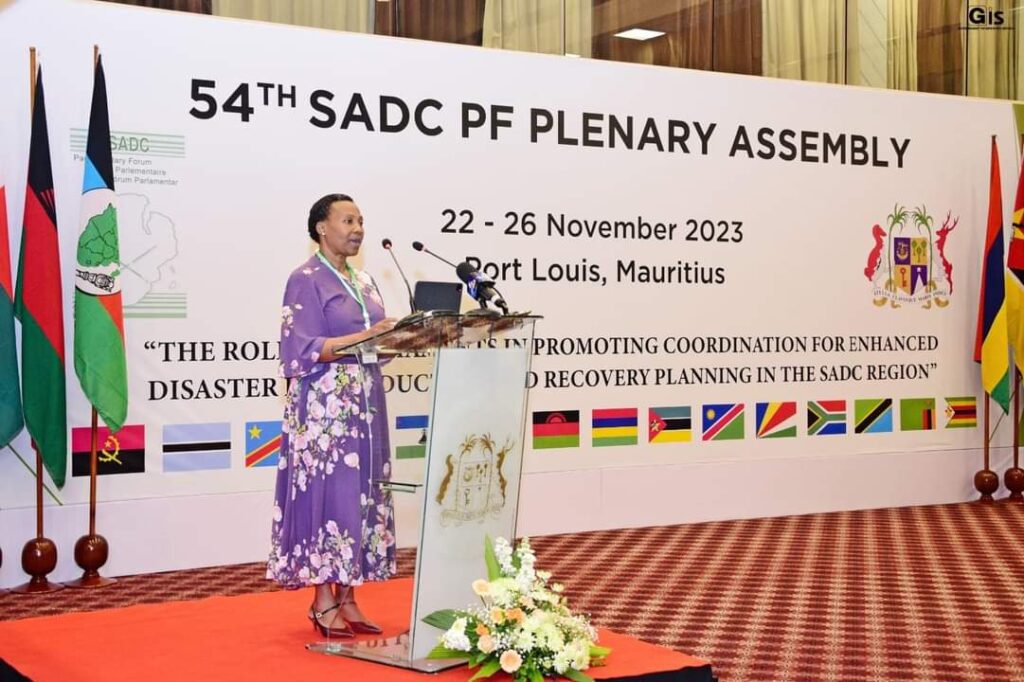

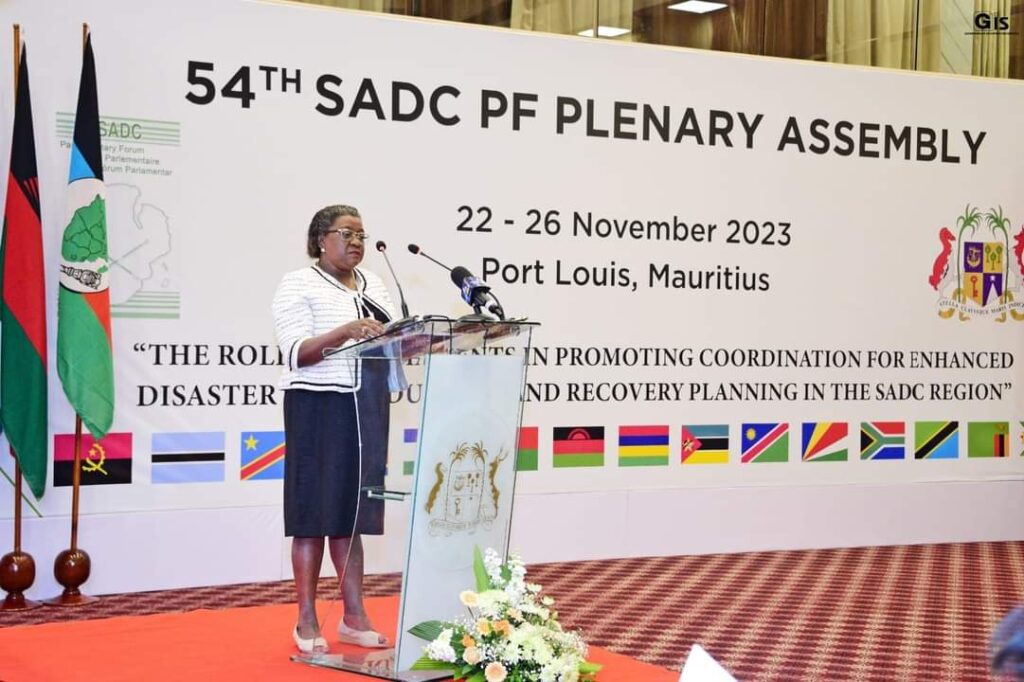
For his part, the Speaker of the National Assembly of Mauritius said that the Forum would give the opportunity to pursue regional cooperation, adding that inter-parliamentary democracy played an important role in international relations and in pursuing the regional integration agenda.
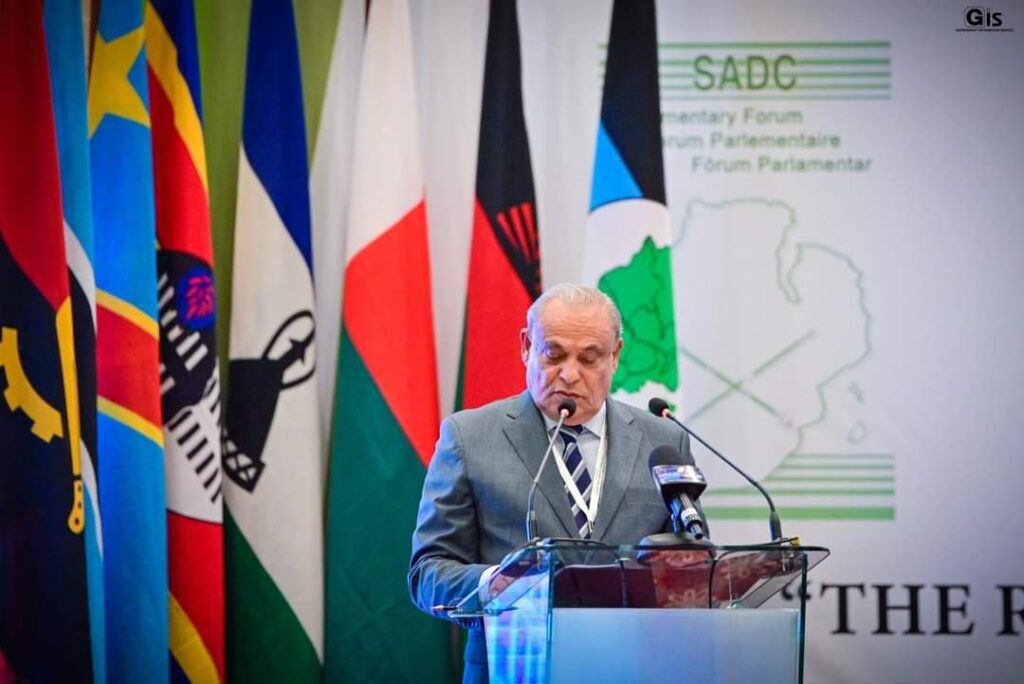
He highlighted that climate change had become a growing concern, causing significant damages, and having a toll on countries’ economies and that it was important for Parliamentarians to deliberate and work together to address common issues of concern. He expressed optimism that the Assembly would play a crucial role in promoting coordination within the SADC region and in addressing complex challenges caused by climate change.
As for Mr Mancienne, he acknowledged Mauritius Parliament’s pivotal role in the Forum, bringing invaluable leadership and values, and having been consistent in supporting the Forum over the years. He also explained the role of the Forum in the face of emerging challenges, and reiterated the role of the Forum to continue to work for a more inclusive, sustainable, developed and harmonious region.